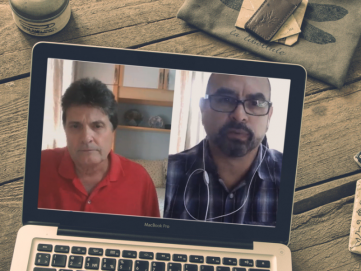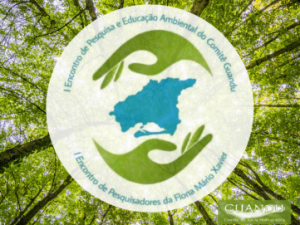Thursday (20) was productive at the Guandu-RJ Committee. The Board held the ordinary meeting of the Technical Chamber for Basic Sanitation (CTSB) and the extraordinary meeting of the Technical Chamber for General Studies (CTEG). On the agenda, the works of the Rural Sanitation projects, the ecological restoration of PAF properties and environmental education actions. The members discussed the scope of the actions and forwarded them to the Plenary for deliberation. The estimate is that the actions will start this year.
In the morning, CTSB focused on the Rural Sanitation project. This year, the Committee completed the preparation of basic and executive projects for the depletion of rural and peri-urban areas in the fifteen municipalities of the basin. These are places where around seventy thousand people live, which can generate twelve million liters of sewage per day. The project, which carried out an in-depth diagnosis, raised the best environmental and economic solutions for each location. Now the Committee will hire an engineering company and a manager to carry out the infrastructure and sanitation works and services provided for in the municipalities. The idea is to carry out the works according to the hierarchy already structured by the collegiate, within a period of 18 months, which includes the construction of sewage structures, inspection of the works and documentation for their operation. The objective is to reduce the amount of sewage that reaches the rivers in the Guandu basin, improving the quality of the water that supplies around nine million people in the Metropolitan Region of Rio de Janeiro.
After studies, analyzes and contributions from members, experts and guests, the projects were sent for deliberation by the Plenary.
In the afternoon, CTEG discussed the hiring of a company to carry out ecological restoration actions in 17 properties that participate in the Water and Forest Producers program in the city of Rio Claro/RJ. The initiative has been carried out for eleven years by the Collegiate and is currently in the municipalities of Rio Claro, Mendes, Vassouras and Engenheiro Paulo de Frontin. With support from municipalities and partner organizations, it has already resulted in the conservation and recovery of more than five thousand hectares of the Atlantic Forest. The idea now is to further increase the environmental recovery rates, which directly impact the environmental quality of the basin, and consequently the quality of the water.
CTEG also discussed environmental education projects, such as Cine Guandu-RJ – a cultural and environmental contest that will mobilize students from the basin, public notices to aid research and environmental education projects, and the basin’s Environmental Education Plan with an emphasis on water resources. All projects are in an advanced structuring phase.
The collegiate will meet again next Thursday, May 27, at 1:30 pm, in the second ordinary meeting of the Plenary. Rural Sanitation and the PAF will be on the agenda of discussions and deliberations.
COMMUNICATION GUANDU COMMITTEE
Telephone: (21) 3787 3729
E mail: comunicacao.guandu@agevap.org.br




